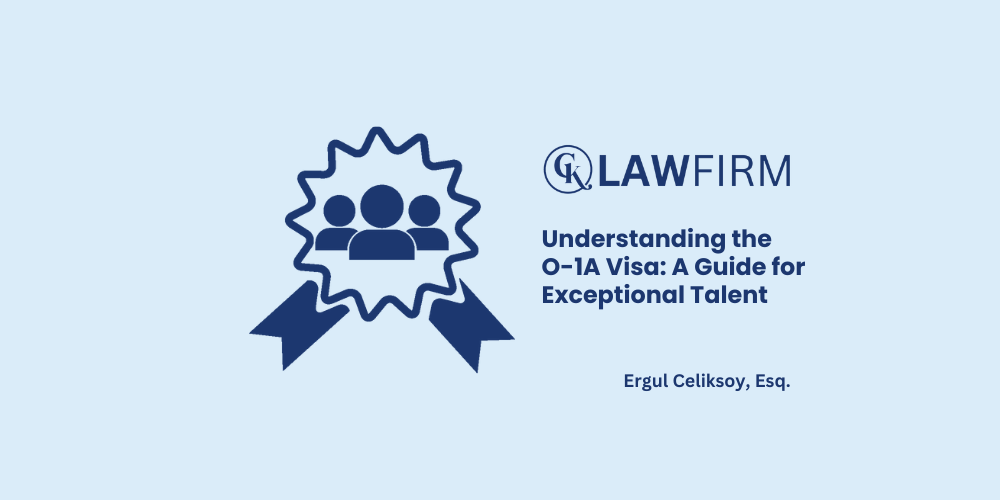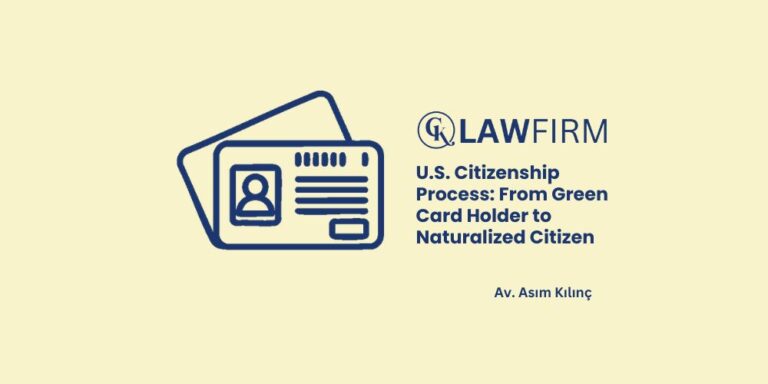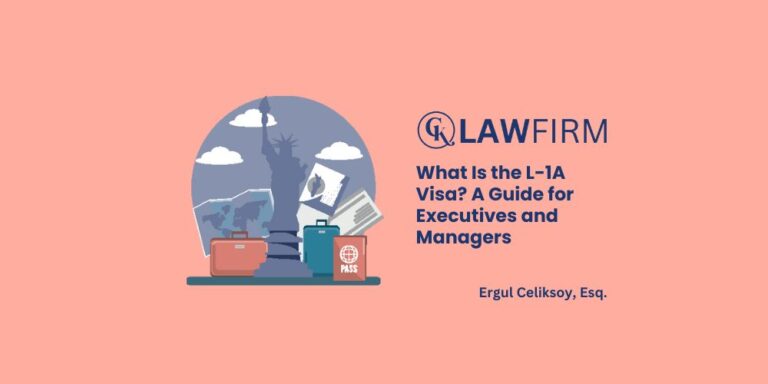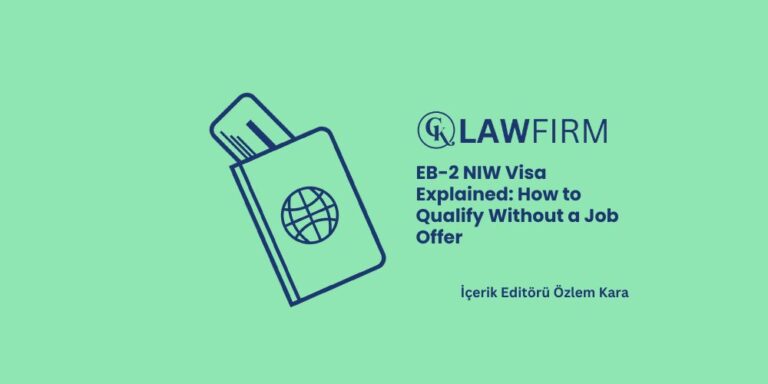Schedule an Appointment with Our Attorneys Now

Understanding the O-1A Visa: A Comprehensive Guide for Exceptional Talent
- Introduction
- Brief overview of the O-1A visa
- Who it’s for and why it matters
- What Is the O-1A Visa?
- Simple definition
- Difference between O-1A and O-1B
- Purpose and scope of the visa
- Who Qualifies for the O-1A Visa?
- Eligibility criteria
- Examples of qualifying professions
- What counts as “extraordinary ability”
- The O-1A Visa Application Process
- Step-by-step guide
- USCIS petition (Form I-129)
- Role of sponsor or agent
- What Documents and Evidence Do You Need?
- Types of supporting evidence
- Documentation of achievements and acclaim
- Building a strong case
- Benefits of the O-1A Visa
- Work rights in the U.S.
- Family members (O-3 Visa)
- Duration and extensions
- Frequently Asked Questions About the O-1A Visa
- Job offer requirements
- Green card possibilities
- Changing employers
- How CK Law Firm Can Help with Your O-1A Visa Petition
- Legal support
- Experience with USCIS
- Value-added services
- Conclusion
- Recap
- Encouragement to apply with legal guidance
For individuals with extraordinary abilities in science, education, business, or athletics, the O-1A visa offers a unique opportunity to work in the U.S. This visa type is part of the O-1 visa classification, designed specifically for individuals who have demonstrated a record of extraordinary achievement in their field. In this comprehensive guide, we’ll explain the O-1A visa process in plain terms and help you understand whether this visa might be right for you.
What Is the O-1A Visa?
The O-1A visa is a nonimmigrant visa for individuals with extraordinary ability or achievement in fields such as science, business, education, or athletics. Unlike the O-1B visa, which is for arts or extraordinary achievement in the motion picture and television industry, the O-1A is strictly for those with exceptional talent in technical and professional fields.
The United States Citizenship and Immigration Services (USCIS) classifies the O-1 visa into two main types: O-1A and O-1B. Both visa categories are intended for individuals who are at the top of their field, but they differ in area of extraordinary ability.
Who Qualifies for the O-1A Visa?
To qualify for the O-1A visa, you must demonstrate extraordinary ability in your field through sustained national or international acclaim. This means having a track record of exceptional achievements that place you among the top of your field.
Eligibility requirements include:
- Awards or prizes for excellence
- Membership in associations that require outstanding achievements
- Published material about your work
- A high salary or other evidence of outstanding income
- Participation as a judge of the work of others
- Original contributions of major significance
You do not have to meet every criterion, but your O-1 petition must demonstrate extraordinary ability through strong supporting evidence.
The O-1A Visa Application Process
The application process can be complex, and it begins with a U.S. employer or agent filing Form I-129, Petition for a Nonimmigrant Worker, with USCIS on your behalf. You cannot self-petition for this visa.
Steps in the O-1A visa petition process:
- Find a U.S. sponsor or agent.
- Submit Form I-129 and supporting documentation.
- Include an advisory opinion from a peer group or expert organization.
- Show evidence of your extraordinary ability in the field.
Once your petition is approved, you can apply for your visa at a U.S. consulate or embassy abroad. USCIS processing time varies, but premium processing is available for faster results.
What Documents and Evidence Do You Need?
Your visa application must include clear documentation that proves your extraordinary abilities. USCIS will look for compelling, well-organized evidence of your accomplishments.
You should prepare:
- Proof of awards and honors
- Press and media coverage
- Contracts and job offers
- Letters from experts in your field
- Documentation of salary, memberships, and achievements
You must demonstrate extraordinary ability in their field, and each document should support your case as an O-1 beneficiary.
What Are the Benefits of the O-1A Visa?
The O-1A visa offers several advantages for exceptional individuals:
- Ability to work in the United States legally
- Initial stay of up to three years, with extensions allowed
- Eligibility to bring family under the O-3 visa category
- No annual cap like the H-1B visa
For many, this is a preferred work visa due to its flexibility and high level of recognition.
Frequently Asked Questions About the O-1A Visa
Can I apply for a green card while on an O-1A visa?
Yes, O-1 visa holders can apply for a green card. Many transition to the EB-1A Extraordinary Ability Green Card Visa or EB-2 NIW (National Interest Waiver) Visa categories.
Do I need a job offer to apply for an O-1 visa?
Yes, you must have a U.S. sponsor or agent to submit the visa petition. You cannot apply on your own.
How long is the O-1A visa processing time?
USCIS processing time can vary but generally takes 2 to 3 months. Premium processing reduces this to 15 calendar days.
How CK Law Firm Can Help with Your O-1A Visa Petition
At CK Law Firm, we have successfully handled O-1A and O-1B visa petitions for individuals with exceptional talent. We understand what USCIS looks for and how to frame your case for success. Whether you’re applying for an O-1A visa or exploring eligibility for an O-1B visa, we can provide a thorough strategy and support.
Our team ensures your visa application is strong, your petition is complete, and your evidence of extraordinary ability is clearly presented.
Conclusion
The O-1A visa is an ideal solution for individuals with extraordinary talent who want to work in the U.S. If you’ve demonstrated a record of extraordinary achievement, this visa type may open doors to exciting opportunities.
To learn more or begin your O-1A visa application, contact CK Law Firm today. We’re here to guide you through the O-1 visa process with clarity, confidence, and care.





